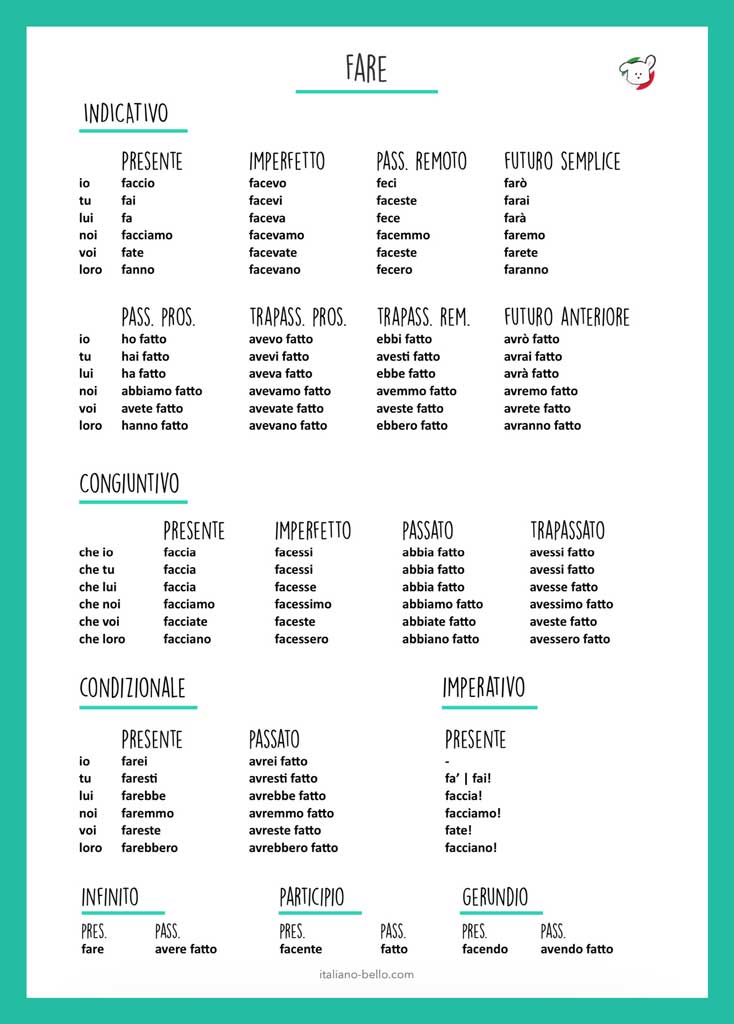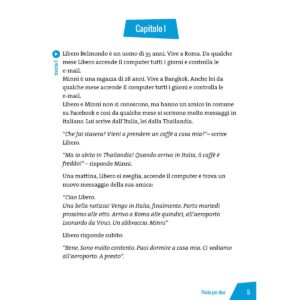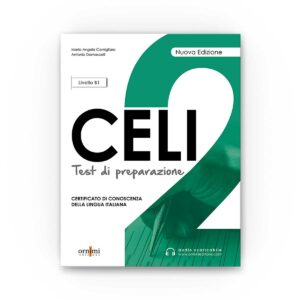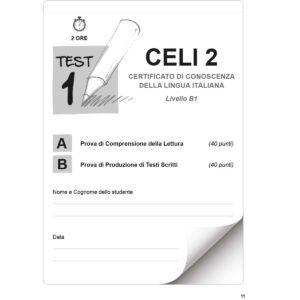Vollständige Konjugation und Bedeutung des italienischen Verbs fare.
FARE Konjugation
LADE DAS PDF HERUNTER
INDICATIVO
Presente
| io faccio | noi facciamo |
| tu fai | voi fate |
| lui, lei fa | loro fanno |
Passato prossimo
| io ho fatto | noi abbiamo fatto |
| tu hai fatto | voi avete fatto |
| lui, lei ha fatto | loro hanno fatto |
Imperfetto
| io facevo | noi facevamo |
| tu facevi | voi facevate |
| lui, lei faceva | loro facevano |
Trapassato prossimo
| io avevo fatto | noi avevamo fatto |
| tu avevi fatto | voi avevate fatto |
| lui, lei aveva fatto | loro avevano fatto |
Passato remoto
| io feci | noi facemmo |
| tu facesti | voi faceste |
| lui, lei fece | loro fecero |
Trapassato remoto
| io ebbi fatto | noi avemmo fatto |
| tu avesti fatto | voi aveste fatto |
| lui, lei ebbe fatto | loro ebbero fatto |
Futuro semplice
| io farò | noi faremo |
| tu farai | voi farete |
| lui, lei farà | loro faranno |
Futuro anteriore
| io avrò fatto | noi avremo fatto |
| tu avrai fatto | voi avrete fatto |
| lui, lei avrà fatto | loro avranno fatto |
CONGIUNTIVO
Congiuntivo presente
| (che) io faccia | (che) noi facciamo |
| (che) tu faccia | (che) voi facciate |
| (che) lui, lei faccia | (che) loro facciano |
Congiuntivo passato
| (che) io abbia fatto | (che) noi abbiamo fatto |
| (che) tu abbia fatto | (che) voi abbiate fatto |
| (che) lui, lei abbia fatto | (che) loro abbiano fatto |
Congiuntivo imperfetto
| (che) io facessi | (che) noi facessimo |
| (che) tu facessi | (che) voi faceste |
| (che) lui, lei facesse | (che) loro facessero |
Congiuntivo trapassato
| (che) io avessi fatto | (che) noi avessimo fatto |
| (che) tu avessi fatto | (che) voi aveste fatto |
| (che) lui, lei avesse fatto | (che) loro avessero fatto |
CONDIZIONALE
Condizionale presente
| io farei | noi faremmo |
| tu faresti | voi fareste |
| lui, lei farebbe | loro farebbero |
Condizionale passato
| io avrei fatto | noi avremmo fatto |
| tu avresti fatto | voi avreste fatto |
| lui, lei avrebbe fatto | loro avrebbero fatto |
IMPERATIVO
Imperativo presente
| – | facciamo! |
| fa’ | fai! | fate! |
| faccia! | facciano! |
TEMPI INFINITI
Infinito
| PRESENTE | PASSATO |
| fare | avere fatto |
Participio
| PRESENTE | PASSATO |
| facente | fatto |
Gerundio
| PRESENTE | PASSATO |
| facendo | avendo fatto |
Lerne alle italienische Zeitformen
FARE Bedeutung
| fare | tun, machen |
Dizionario italiano
A v.tr.
1 Compiere, eseguire, operare: f., non f. qualcosa; f. un lavoro; f. un salto, un gesto, una risata, non sapere che f.
|| Fare il bagno, bagnarsi integralmente
|| Fare di conto, contare, computare
|| Fare i fatti, agire concretamente
|| Fare musica, suonare, spec. abitualmente
|| Fare una promessa, promettere
|| Fare scuola, insegnare; estens. divenire un modello
|| Fare un sogno, sognare
|| Fare un pensiero, un pensierino su qualcosa, essere allettati dalla possibilità di averla
|| Fare di tutto, il possibile, l’impossibile, tentare in ogni modo e con ogni mezzo di raggiungere un determinato scopo: farò di tutto per arrivare in tempo; ho fatto il possibile per aiutarti
|| eufem. Fare la vita, prostituirsi
|| Non c’è più niente da fare, ormai è tutto inutile
|| Non farne nulla, non concludere, non mandare a fine: la gita? non se ne fa nulla
2 ass. Agire, operare: hai fatto bene; non fate così
|| Lavorare: non vale la pena di f. senza pensare
|| Spesso sostituisce un verbo che precede, evitandone la ripetizione: piange come fanno i bambini
|| Avere da fare, essere occupato
|| Darsi da fare, occuparsi di qualcosa con impegno
|| Fai e fai, a forza di insistere: fai e fai, l’ha avuta vinta
|| Fare come qualcuno, imitarne il comportamento
|| Fare a farsela, ingannarsi a vicenda
|| Fare e disfare, spadroneggiare
|| Fare tanto che, sforzarsi, adoperarsi per ottenere qualcosa: tanto ha fatto che si è laureato
|| Lasciar fare, lasciare che qualcuno si comporti come ritiene più opportuno
|| Non fare per dire, non avere intenzioni malevole, spec. nel formulare una critica: non faccio per dire, ma non mi pare si sia comportato bene
3 Creare: Dio fece l’universo
|| Generare: f. un figlio, un bambino; queste piante fanno i fiori
|| Produrre: f. il pane; un artigiano che fa borse di cuoio
|| Costruire, fabbricare: f. un muro, un palazzo
|| Preparare: f. da mangiare; f. la cena
|| Cucinare: fa degli ottimi arrosti
|| Cagionare: questa coperta mi fa troppo caldo
4 Provocare, causare, produrre: f. effetto, f. impressione
|| Formare: più avanti la strada fa gomito
|| Fare bene, giovare
|| Fare colpo su qualcuno, colpirlo, impressionarlo
|| Fare coraggio, animo a qualcuno, incoraggiarlo, rinfrancarlo
|| Fare paura, spaventare: mi hai fatto paura; viaggiava a una velocità da f. paura
|| Fare piacere a qualcuno, provocargli piacere e soddisfazione
|| Fare specie, sorprendere, stupire
|| Fare schifo, disgustare, nauseare, infastidire profondamente: questa minestra fa schifo; quel posto mi faceva schifo; come insegnante fa schifo
|| Non fare né caldo né freddo, lasciare del tutto indifferente: le tue parole non mi fanno né caldo né freddo
|| Non fa nulla, non fa niente, non importa: non fa nulla se non scrive
|| Tanto fa, tanto vale: tanto fa che non venga neppure
5 Sforzarsi, agire in modo tale che: tanto fecero che alla fine accettai; fate che questo non accada
6 Con valore causativo (seguito da un v. all’inf.): ti farà f. una brutta figura; lo fecero uscire di nascosto; sono cose che fanno riflettere
7 Lasciare; mettere in condizione di (seguito da un v. all’inf.): fammi capire; fammi f. un ultimo tentativo
8 Con valore generico riconducibile a un’azione, acquista vari significati determinati di volta in volta dal contesto
|| Fare un accordo, un patto, accordarsi, pattuire
|| Fare un affare, un acquisto vantaggioso
|| Fare la bella vita, vivere in modo agiato e piacevole
|| Fare la bocca a qualcosa, illudersi che qualcosa sia possibile
|| Fare il callo a qualcosa, farci l’abitudine
|| Fare le carte, nel gioco, distribuirle ai giocatori; nella cartomanzia, consultarle per predire il futuro, per ottenerne responsi
|| Fare caso a qualcosa, a qualcuno, attribuire importanza a qualcosa o a qualcuno
|| Fare carriera, avere successo, ottenere avanzamenti nel lavoro
|| Fare la fame, soffrirla, essere in miseria
|| Fare festa, festeggiare
|| Fare fortuna, arricchirsi
|| Fare fronte a qualcosa, affrontarla: ha fatto fronte a grandi difficoltà
|| Fare fuori qualcuno, eliminarlo da una competizione; ucciderlo
|| Fare una bella, una brutta figura, dare un’impressione positiva o negativa
|| Fare notizia, avere rilevanza giornalistica: quel caso ha fatto notizia; è un personaggio che fa sempre notizia
|| Fare a pezzi, ridurre in pezzi; fig. sconfiggere, umiliare
|| Fare presa, di collante, cemento e sim., solidificarsi; fig. attecchire, diffondersi: è una moda che ha fatto presa
|| Fare rotta, dirigersi
|| Fare scalo, tappa, sostare
|| Fare una scuola, una classe, frequentarla
|| Fare silenzio, stare zitto, tacere
|| Fare in tempo a fare qualcosa, riuscirvi in un tempo determinato
|| Fare, farsi strada, aprirsi un passaggio; fig. raggiungere una buona posizione sociale
|| Fare tanto di cappello, ammirare esplicitamente
|| Fare tesoro di qualcosa, averne grande cura; fig. trarne insegnamento: farò tesoro dei tuoi consigli
|| Farla, fare una certa cosa
|| Farla a qualcuno, beffarlo
|| Farla finita, smettere, cessare definitivamente; estens. suicidarsi
|| Farla franca, riuscire a sfuggire alle proprie responsabilità, a scampare a una punizione
|| Farla lunga, dilungarsi
|| Farla sporca, commettere un’azione riprovevole, sleale
|| Farsela addosso, sporcarsi con i propri escrementi; fig. spaventarsi moltissimo
|| Farcela, fargliela, riuscire a fare, essere capace, resistere: a furia d’insistere, alla fine ce l’ha fatta
|| Farne di tutti i colori, di cotte e di crude, compiere azioni di ogni genere, spec. bizzarre o biasimevoli
9 Comportarsi, assumere un certo atteggiamento: f. la vittima, f. lo gnorri, non f. lo scemo!
|| Fingere di essere; fingersi: non f. l’ingenuo
|| Imitare: f. il leone che ruggisce
|| Riprodurre: f. il verso del gatto
10 Trattare, rapportarsi con altri
|| Avere che fare, a che fare, con qualcuno o con qualcosa, averci rapporti: non ho niente a che f. con quel progetto; cos’hai a che f. con quel tipo
|| Farsela con qualcuno, intendersela, avere una relazione con lui o con lei
|| Sapere, saperci fare, cavarsela bene alle prese con qualcuno o qualcosa: è uno che ci sa f. con i bambini; col pianoforte non ci sai proprio fare!
11 Eleggere, nominare, promuovere: lo hanno fatto senatore
12 Rendere, far diventare: l’esperienza ti farà migliore
|| Ridurre: la prodigalità lo ha fatto povero
|| Procurare: si è fatto molti nemici
13 Credere, giudicare, immaginare: ti facevo più intelligente; lo fanno straordinariamente ricco
|| Concepire, immaginare: f. il disegno di partire; f. un progetto; f. propositi di vendetta
|| Dare un’impressione: questi accessori fanno chic
14 Esercitare una professione, un mestiere, un’attività: f. l’avvocato, il meccanico, il commesso; f. sport, modellismo
|| Occupare una carica: fa l’assessore
|| (seguito dalla prep. da) Fungere: mi ha fatto da padre; f. da consulente; una cassa faceva da tavolo
15 Contare, contenere: questa città fa oltre un milione di abitanti
|| Segnare, di orologio: la sveglia fa le quattro
|| Fare mezzanotte, l’una ecc., restare alzati fino a mezzanotte, l’una ecc.
16 Raccogliere, prendere: f. l’erba; è andato a f. legna
|| Caricare: ci siamo fermati a f. benzina
|| Fare acqua, di imbarcazione, imbarcare acqua; fig. essere in pessime condizioni, in grave crisi: un’azienda che fa acqua
|| Un ragionamento che fa acqua da tutte le parti, lacunoso, poco coerente, poco convincente
17 Percorrere: ha fatto un lungo cammino; f. la via più breve
|| Strada facendo, lungo il cammino
18 Trascorrere: f. il Natale in famiglia; faremo le vacanze al mare
19 Dare, porgere, prestare: f. la carità; f. attenzione
20 Giocare: f. una partita a scacchi, a tennis
|| Rappresentare: alla Scala hanno fatto la “Traviata”; al cinema fanno un bel film stasera
|| Recitare: farà la parte del protagonista
21 Dire: f. due chiacchiere con un amico; mi fece un lungo discorso; non farne parola con nessuno; “va bene”, fece lei sorridendo
22 Di operazioni aritmetiche, dare come risultato: tre più tre fa sei; cinque meno quattro fa uno
23 pop. Ottenere
|| enf. Godersi qualcosa: mi sono fatto una bella bistecca; ci siamo fatti un sacco di risate; perché non vi fate una bella passeggiata?
|| Farsi qualcosa, ottenerla; procurarsela: farsi la macchina nuova, la barca
|| volg. Farsi una donna, un uomo, avere un rapporto sessuale
B v.intr. (aus. avere)
1 Bastare, servire, convenire: guarda se ti fa questo; sono cose che non fanno per me
2 Attecchire, allignare: sui monti queste piante non fanno; qui ci fanno i limoni
3 Compiersi: oggi fa un anno che non ci vediamo
|| Fare tardi, rimanere fuori, alzati o svegli fino a tardi
4 In diverse locc., seguito dalla prep. a: f. a, ai pugni; f. a, alle sassate; f. alla lotta, a mosca cieca, a rincorrersi
|| Fare a meno di qualcuno, di qualcosa, non servirsene, rinunciarvi
|| Fare a mezzo, a metà di qualcosa, dividersela a metà
C v.intr. impers. (aus. avere)
1 Divenire, essere: ormai fa giorno; faceva notte
|| Un anno, due anni fa, un anno, due anni or sono
2 Di condizioni meteorologiche, essere: oggi fa freddo; faceva un gran caldo
D v.rifl. fàrsi
1 Rendersi: si è fatto prete
2 Andare, venire, avvicinarsi: farsi alla finestra; si faccia avanti
3 Fingersi: si fa bello dei meriti altrui
|| Farsi bello, abbellirsi: si è fatta bella per la festa
4 ass., gerg. Drogarsi: si fa da molti anni
E v.intr. pronom. fàrsi
1 Diventare: si è fatto alto; la realizzazione del nostro progetto si fa sempre più improbabile
2 Cominciare a raccontare: bisogna farsi dal principio per capire
F come s.m.
1 L’agire, l’operare: tra la casa e il lavoro ha il suo bel da f.
|| Fra il dire e il fare c’è di mezzo il mare, c’è una grande differenza tra l’enunciazione di un progetto e la sua realizzazione
2 Modo di comportarsi, portamento, tono: ha un f. compìto; non mi piace quel suo f. arrogante
3 Inizio, fase iniziale: essere sul f. del giorno; al f. della notte, dell’alba
|| PROV. Chi fa da sé fa per tre, l’azione individuale è più efficace di quella di gruppo, che spesso comporta ritardi e complicazioni
|| PROV. Chi la fa l’aspetti, chi compie una cattiva azione deve aspettarsi di subirla a sua volta
|| PROV. Chi non fa non falla, l’unico che non corre il rischio di sbagliare è colui che non agisce
|| PROV. F. e disfare è tutto un lavorare, per portare a termine un lavoro è spesso necessario ricominciare dall’inizio, vanificando il lavoro già compiuto
Copyright © Hoepli 2018










